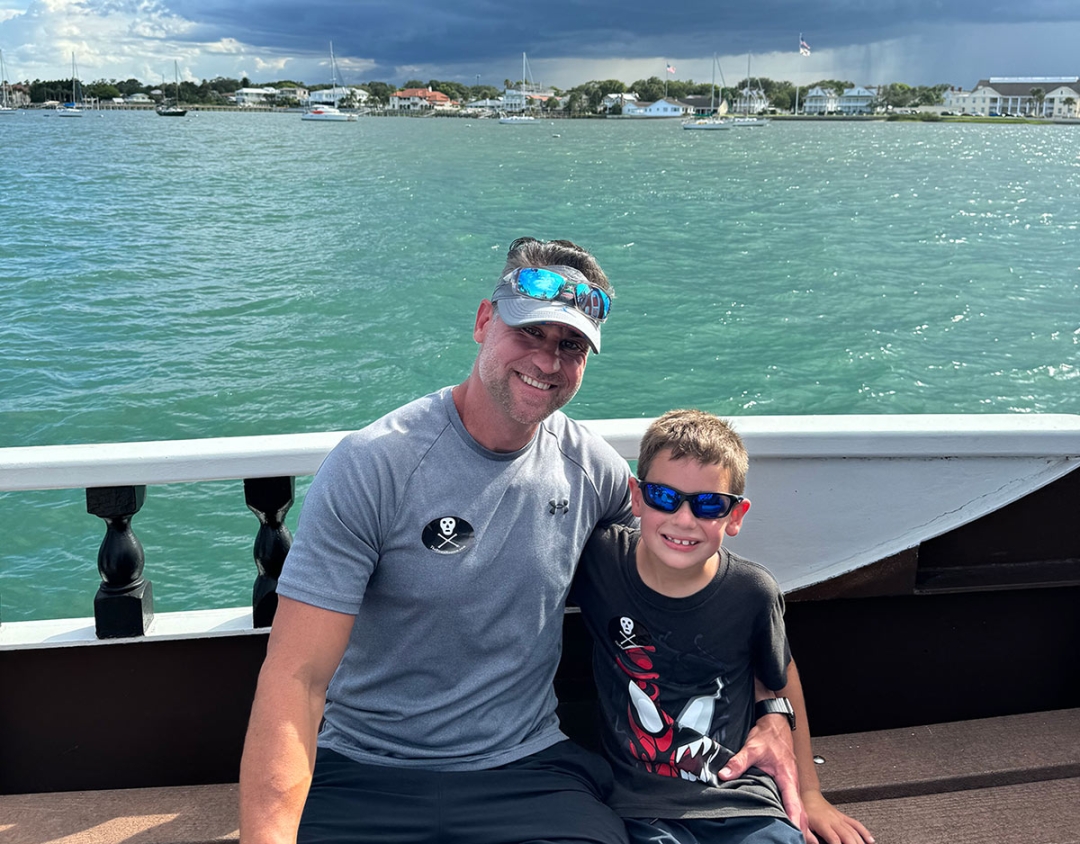Jacksonville, FL - November 18, 2025 - Former U.S. Navy Nurse and Certified Registered Nurse Anesthetist (CRNA) Darrel Kalinski is calling for greater awareness and support for veterans navigating the often-overlooked challenges of transitioning from military service to civilian life. Drawing on his own experiences from his time in uniform and in healthcare, Kalinski is using his voice to advocate for mentorship, mental health awareness, and structured pathways that help veterans build purposeful second careers.
“Leaving the military can feel like losing part of your identity,” Kalinski said. “You go from a world built on order, teamwork, and mission to one that can feel uncertain. What helps bridge that gap is mentorship — someone who says, ‘You’ve still got a mission. Let’s find it together.’”
The Hidden Struggle of Transitioning Veterans
Each year, over 200,000 U.S. service members transition out of the military, according to the U.S. Department of Defense. Yet many report significant difficulty adapting to civilian careers. A 2023 Pew Research Center study found that 44% of veterans describe their transition as “challenging,” and one in four experience anxiety or depression during the process.
Kalinski believes part of the problem is the lack of structured support after discharge. “We do an incredible job preparing people to serve,” he said. “But we don’t always prepare them to stop serving — and that’s where a lot of good men and women struggle.”
His own story reflects both the difficulty and the reward of that transition. After six years as a United States Naval Officer and Navy Nurse, Kalinski earned his Master of Science in Nursing and became a CRNA — one of the most advanced roles in the nursing profession. He credits his success to mentorship, faith, and the discipline he learned in service.
“In the Navy, leadership meant staying calm under pressure and making decisions that protect others,” he said. “Those lessons carried straight into anesthesiology. Precision, patience, and purpose — those are military values that work anywhere.”
Mentorship as a Lifeline
Kalinski’s message centers on connection. He says the key to helping veterans thrive is creating networks that give them both practical guidance and emotional grounding.
“Every veteran needs two things after service: a sense of belonging and a new mission,” he explained. “When you find someone who’s been through it — who understands both the discipline and the doubts — that’s when real healing starts.”
His perspective aligns with findings from the RAND Corporation, which reported that veterans with mentors are two times more likely to find meaningful employment within a year of separation from service. Yet less than 30% of veterans currently have access to such programs.
Kalinski believes local communities can fill that gap. Through his involvement with The Church of Eleven22 in Jacksonville, he helps lead discipleship and mentorship groups, supporting others through both faith and life transitions. “I tell the guys I work with — you may not be wearing the uniform anymore, but you can still serve,” he said. “Service just looks different now.”
A Call to Action: What Individuals Can Do
Rather than calling for large-scale reforms, Kalinski focuses on small, practical steps anyone can take to support veterans.
-
Start a conversation. Ask a veteran about their story. Listen more than you speak.
-
Connect them to opportunities. Whether it’s job leads, community programs, or volunteer work, every connection counts.
-
Offer mentorship. Share what you’ve learned from your own career and life experiences. Guidance doesn’t have to come from another veteran — just someone willing to help.
-
Advocate for awareness. Support local veteran resource centers and talk openly about the challenges of transition.
“Support doesn’t have to be complicated,” Kalinski said. “Sometimes it’s just showing up — reminding someone they’re not alone and that their skills still matter.”
Faith, Family, and the Next Mission
Today, Kalinski balances his work as a CRNA with his roles as a father, coach, and community leader. He continues to mentor others, including high school students and fellow veterans, helping them rediscover their sense of purpose.
“When I left the Navy, I had to rebuild my idea of service,” he said. “Now I see it in everything — in my patients, my family, my church. That’s the mission now: to help others find theirs.”
Call to Action
Kalinski encourages individuals to reach out to veterans in their communities, listen to their stories, and offer guidance where possible. “You don’t need to start a program or have all the answers,” he said. “You just need to care enough to ask, ‘How can I help?’ That simple question can change a life.”
To learn more about veteran mentorship and transition resources, visit: U.S. Department of Veterans Affairs – Transition Assistance Program (TAP) at www.benefits.va.gov/tap.
Media Contact:
Email: darrelkalinski@emaildn.com
To read the full Interview, click here.
About Darrel Kalinski:
Darrel Kalinski is a Certified Registered Nurse Anesthetist (CRNA), U.S. Navy veteran, and active community leader based in Jacksonville, Florida. With over 20 years of combined service in healthcare and the military, he continues to advocate for mentorship, compassion, and purpose-driven leadership across both fields.
Media Contact
Contact Person: Darrel Kalinski
Email: Send Email
Country: United States
Website: https://www.darrelkalinski.com/

